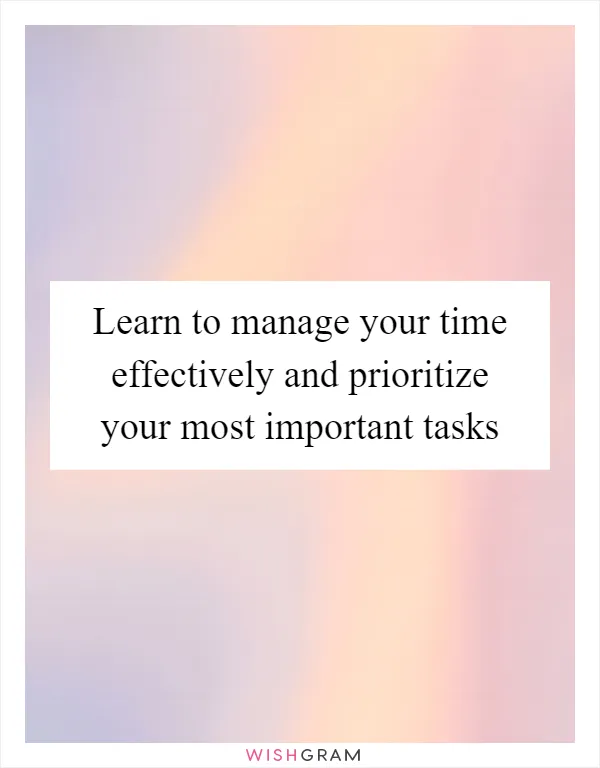Learn to manage your time effectively and prioritize your most important tasks
Managing your time effectively and prioritizing tasks are essential skills that can greatly improve your productivity and reduce stress. By learning these skills, you can make the most of your day and accomplish your goals more efficiently. Here are some tips to help you get started:
1. Identify your most important tasks: Begin by making a list of all the tasks you need to complete. Then, determine which tasks are the most important and require your immediate attention. These could be tasks with deadlines or tasks that contribute directly to your long-term goals.
2. Set realistic goals: It's crucial to set realistic goals for yourself. Break down larger tasks into smaller, more manageable ones. This will help you stay focused and motivated as you make progress. Remember, it's better to accomplish a few tasks well than to overwhelm yourself with an unrealistic workload.
3. Prioritize your tasks: Once you have identified your most important tasks, prioritize them based on their urgency and importance. Consider using a system such as the Eisenhower Matrix, which categorizes tasks into four quadrants: urgent and important, important but not urgent, urgent but not important, and neither urgent nor important. This will help you allocate your time and energy more effectively.
4. Create a schedule or to-do list: Having a visual representation of your tasks can be incredibly helpful. Use a planner, a digital calendar, or a to-do list app to organize your tasks and allocate specific time slots for each. Be sure to include breaks and downtime to avoid burnout.
5. Avoid multitasking: While it may seem like multitasking allows you to accomplish more, it often leads to decreased productivity and increased errors. Instead, focus on one task at a time and give it your full attention. Once you complete a task, move on to the next one.
6. Learn to say no: It's important to recognize your limits and not overcommit yourself. If a task or request doesn't align with your priorities or will stretch you too thin, don't be afraid to politely decline or negotiate a more suitable timeline.
7. Minimize distractions: Identify and eliminate or minimize distractions that hinder your productivity. This could include turning off notifications on your phone, finding a quiet workspace, or using website blockers to limit access to time-wasting websites.
8. Take care of yourself: Remember that managing your time effectively also means taking care of your well-being. Make sure to prioritize self-care activities such as exercise, proper nutrition, and sufficient sleep. When you are well
